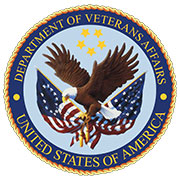mHealth Pilot Targets Underserved Women Veterans
A proposal to dispatch a fleet of mHealth vehicles around the U.S. would help a VA system that's lacking in healthcare services for the nation's 5 million women veterans.

- There are more than 5 million female Armed Forces veterans in the U.S., and 72 percent refuse to go to a VA hospital or clinic.

An mHealth pilot awaiting Congressional approval would try to solve that problem.
A pair of mHealth companies have proposed launching a fleet of mobile health vans to points across the nation to specifically serve female veterans, the fastest growing population within the nation’s military ranks. The specially equipped vehicles would include technology for mammograms, ob-gyn services, behavioral health counseling, cancer screening, lab work, wellness and health promotion and a range of other healthcare services.
“VA hospitals were built for guys 50 or 60 years ago,” says William Vogel, CEO of DMS Health Technologies, a North Dakota-based provider of mobile imaging platforms. “Since then, mHealth has kind of been done on a piecemeal basis, mostly on a local level, and certainly not on a national level and with gender sensitivity in mind.”
Vogel, whose 40-year-old company maintains a fleet of more than 120 vehicles in the U.S. and Canada, is partnering with TrillaMed, a Michigan-based, veteran-owned and staffed provider of medical and non-medical products and services for government institutions and hospitals. They were spurred in part by an April 2015 report, “U.S. Department of Veterans Affairs’ Study of Barriers for Women Veterans to VA Health Care.”
READ MORE: Ensuring Care Continuity Through an EHR-Integrated Telehealth Platform
According to the Congressionally mandated report, more than seven of every 10 women veterans are not getting the healthcare they need at a VA facility because they’re uncomfortable there or the clinics and hospitals don’t have adequate services for female veterans. The report also indicated the VA doesn’t have any comprehensive data or analyses that would help solve that access issue.
The two companies decided to launch a platform to bring the healthcare to the veterans.
“Forget the technology – we’re really talking about capacity and access,” says Vogel. “We’re targeting a population that isn’t being served.”
The two companies worked up a model of a mobile healthcare clinic, and showed it off last summer in Washington D.C. They returned last month as part of the Rolling Thunder Memorial Day rally at the Vietnam and Lincoln memorials.
“We are patients first and contractors second, and as veterans, we use the VA healthcare system ourselves,” TrillaMed CEO Frank Campanero said in remarks prepared for the Memorial Day rally. “Unfortunately, our sister veterans do not have the same level of access to quality of care, so to uphold our promise to never leave a fallen comrade, we continue to fight on behalf of our female soldiers, sailors, airmen and marines.”
READ MORE: US Senators Support Permanent Telehealth Access Through Legislation
Funding for the pilot project is included in an $83 billion discretionary funding line item in the 2017 Military Construction and Veterans Affairs and Related Agencies Appropriations Bill. The Senate recently passed its version of the bill, while the House version is still in discussion. Both bills would then need to be combined into one bill for a Congressional vote.
“We’re in both bills,” says Vogel.
Among its supporters is Sen John Hoeven, R-N.D.
“I worked to include language in the Fiscal Year 2017 MilCon-VA appropriations bill that presses the VA to improve healthcare for female veterans and consider a mobile healthcare pilot program for them,” Hoeven, who serves on the Appropriations Committee’s Military Construction and Veterans Affairs Subcommittee, said in a press release. “The pilot program is designed to fill the current gap in VA gender-specific services. Currently, VA medical centers across the country lack the infrastructure to provide specific women’s health-care services such as mammograms, ultrasounds and OB/GYN services. DMS Health Technologies and other companies are working to partner with the VA to provide these types of gender-specific care as the VA works to expand its infrastructure to meet the growing numbers of women in the military.”
Vogel, who says the pilot can be up and running 90 days after Congressional approval, says the pilot would not only provide needed healthcare services to female veterans, but it would just as importantly collect data on those encounters, culled from the VA’s EHR platform. It could then serve as the foundation for a much larger mHealth platform for underserved veterans.
READ MORE: Enhancing Patient Access, Experience at Virtual Care's Front Door
“Outside of patients care, data is arguably the most important thing. We want to determine whether mHealth is a vehicle that will help the VA,” he says, pointing to the agency’s ongoing issues with access and quality care across the country. “If mHealth can be a part of the solution to that problem, we can expand” the project to serve all veterans, not just women.
Dig Deeper:
VA Expands Telehealth Access for Veterans
Support Builds for VA Telehealth Legislation
